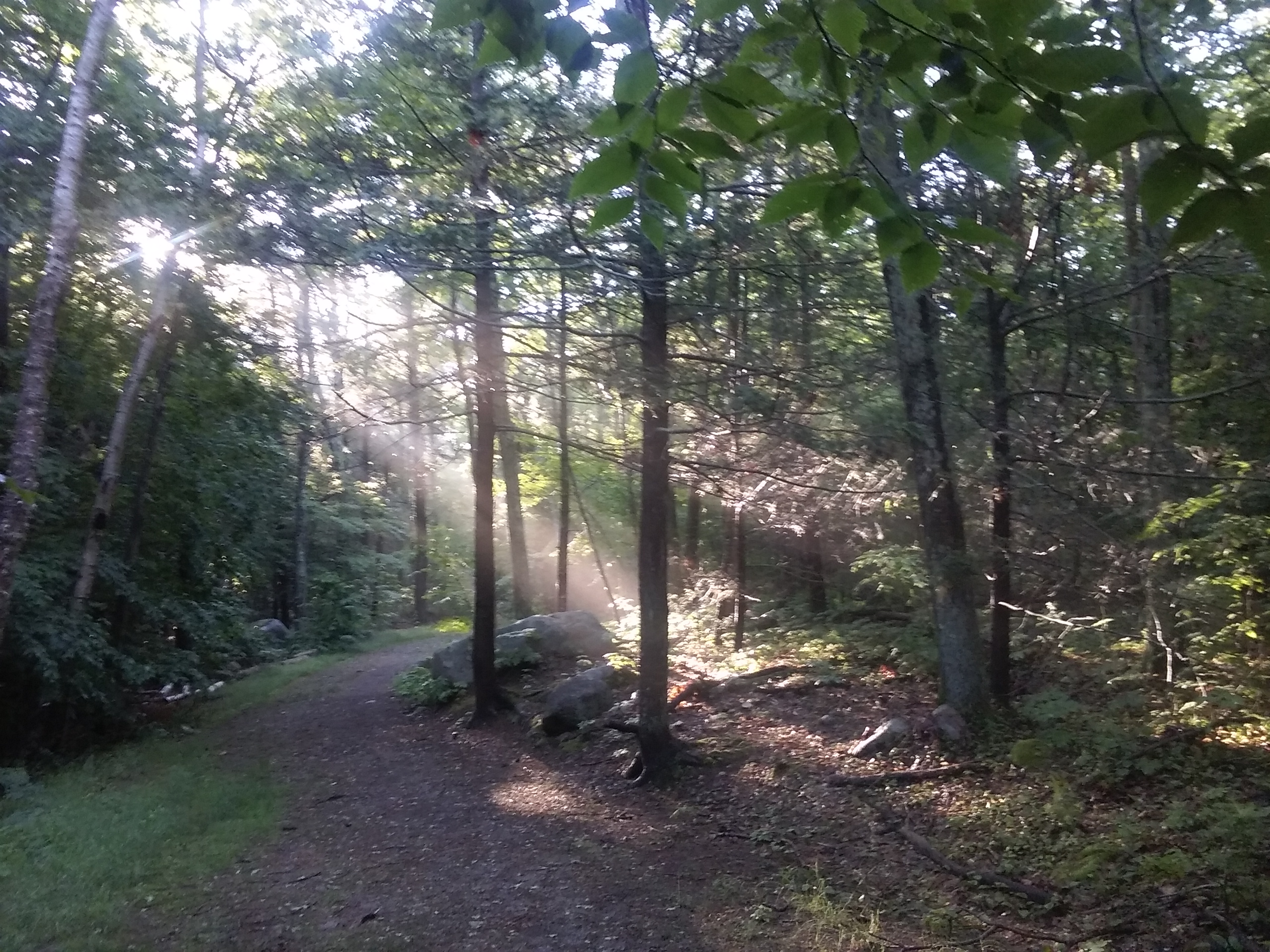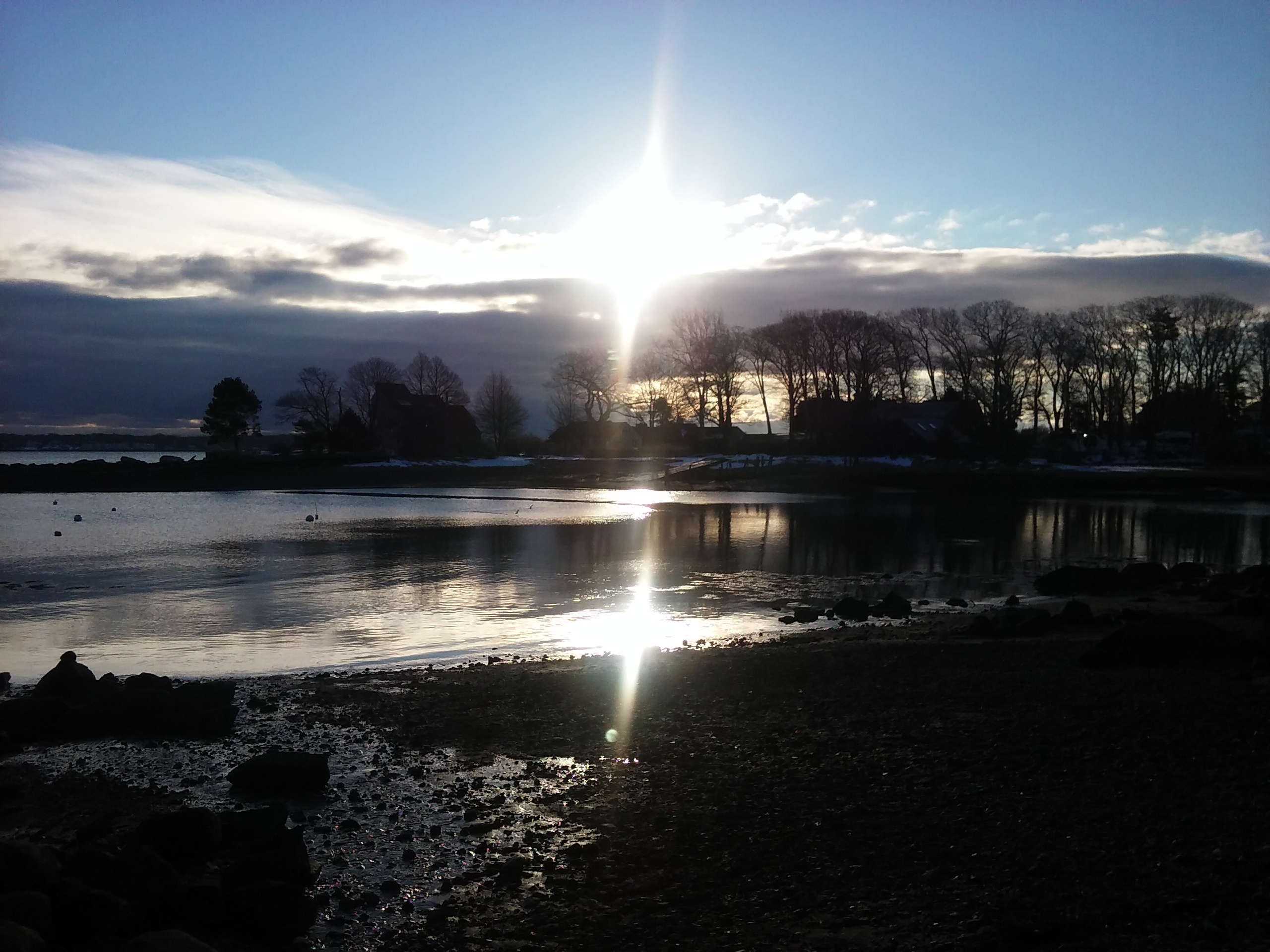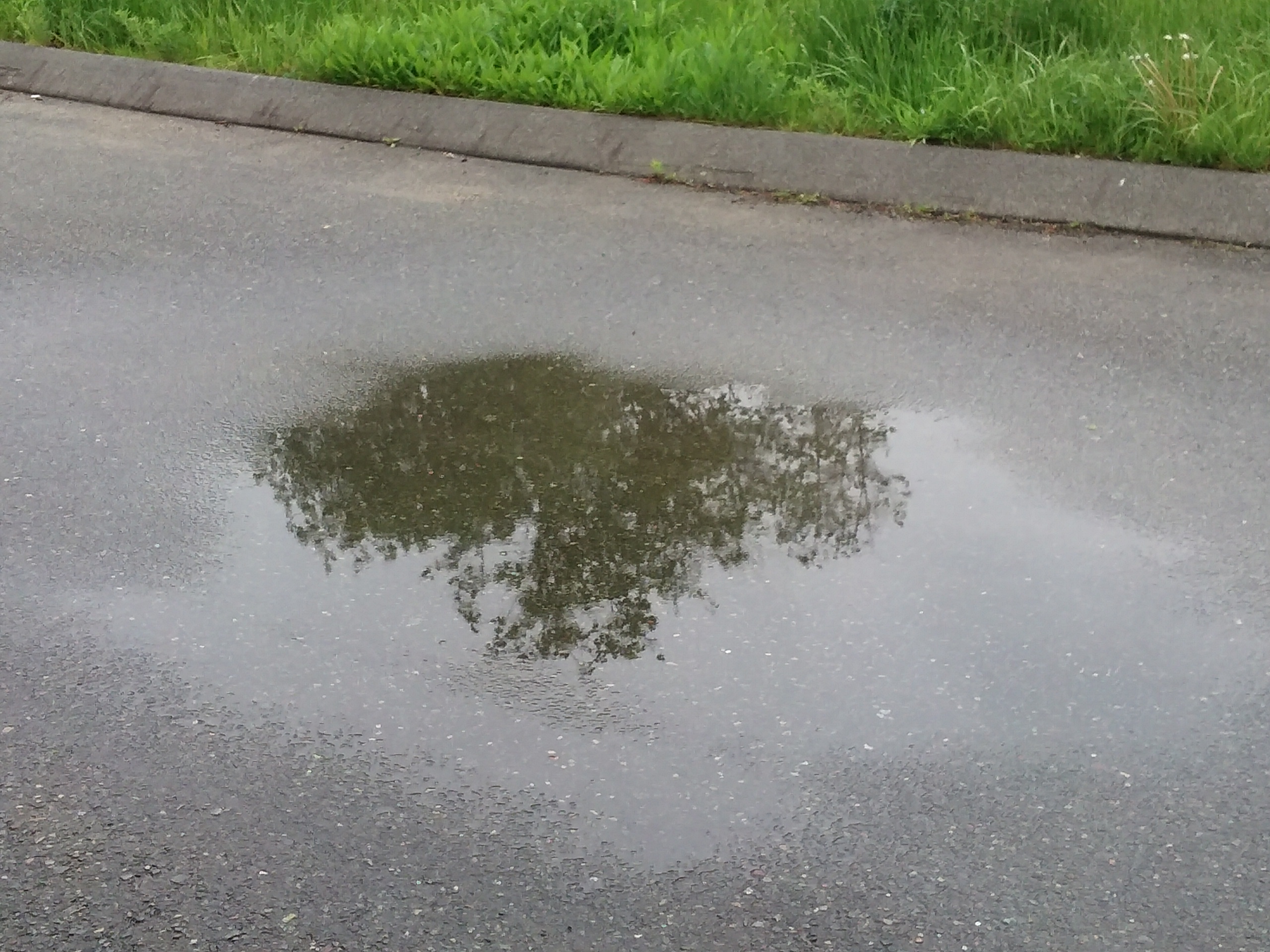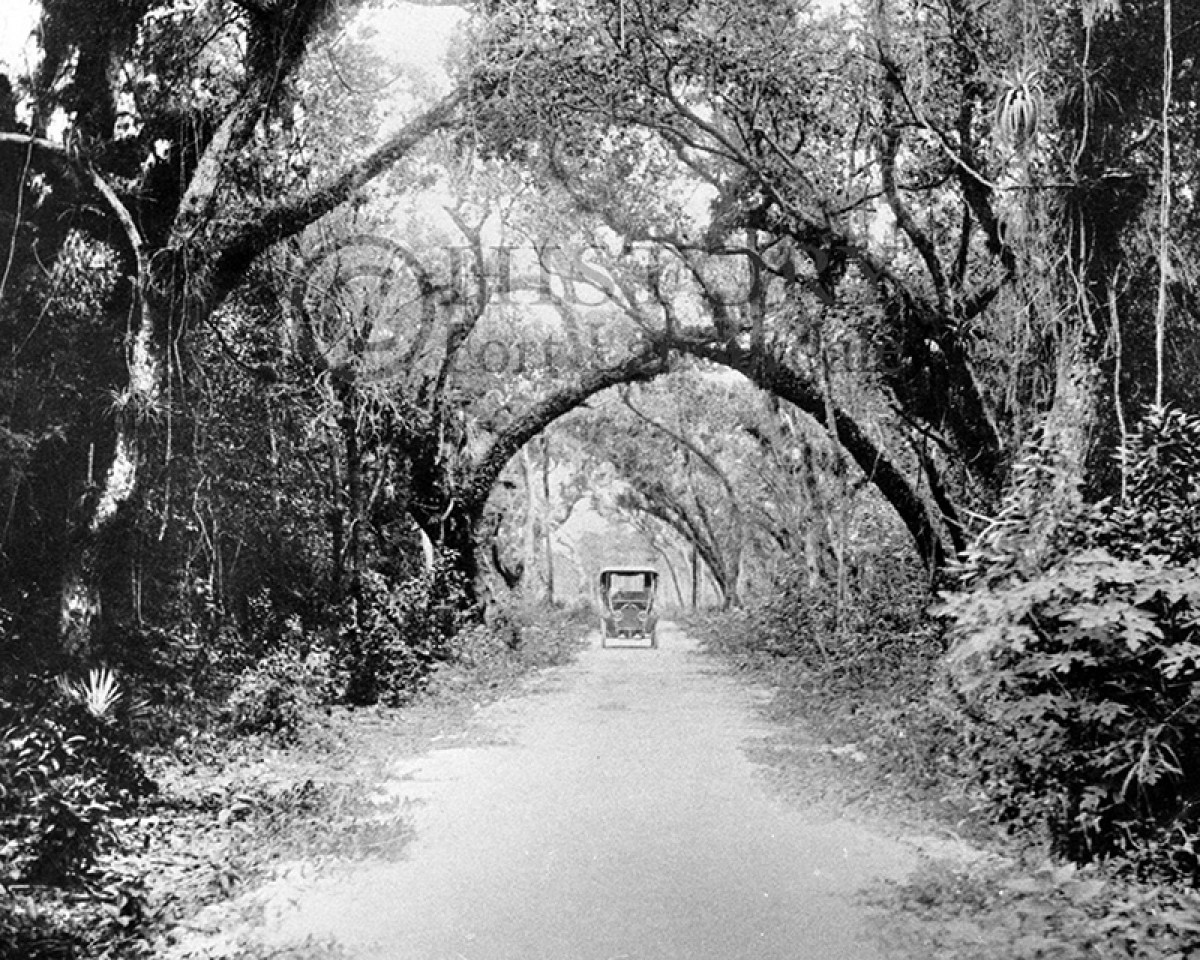Michael
Michael was my friend. Michael died saving my life.
Michael row the boat ashore ... sister help to trim the sails … the River Jordan is chilly and cold … chills the body but not the soul … the river is deep and the river is wide … milk and honey on the other side …
I can only hope that Michael has found his milk and honey.
This is the story of Michael.
Michael and I grew up together. We went through grade school together. Then on to high school, where together we stayed. Neither of us wanted to pursue a “higher” education, so we decided to travel to broaden ourselves, as the terminology was in those days. At that time, we thought good would always win out over evil. But we were yet to be taught our lessons of the real world. Evil does sometimes triumph over good.
Michael James was six feet tall. He had straight blond hair and blue eyes. The bluest eyes I ever did see. If limpid means clear, as I think it does, then Michael’s eyes were limpid pools of blue. The color was that of the sky, perhaps a little lighter, with flecks of yellow throughout the irises. Upon meeting Michael for the first time, one was taken aback by his eyes. They did not bore into your soul—they lit up your life. Then there was his smile. I had known Michael for many years and I don’t think I ever saw him without that shit-eatin’ grin on his puss. That grin, and its persistence, was amazing, given the fact that Michael suffered from a skin problem. He had large red patches on his skin, including his face. They came and went. I thought the name of the disease was psoriasis, but of that I am not certain.
Michael had no mother. She died when he was quite young … before I knew him. He had no siblings; he was reared by his father, which is probably the reason I am alive today. By that, I mean he was raised to be a man. He was taught “The Code” of real men, which is: You do what you have to do.
Michael row the boat ashore …
Though we both had the travel bug, my case was more pronounced than his. During the summer between our junior and senior years of high school, I took off and bounced around the country while Michael held down the fort, so to speak. When I returned to finish my last year of school (at that time I still bought into the myth that you needed at least a high school education to survive in the world), I regaled Michael with tales of my adventures.
Well, after hearing what a wonderful world awaited us out there, Michael could not wait to hit the road. He wanted to leave immediately, but seeing as how I had just come in from a three-month run, I prevailed upon him to wait a few months and allow me to at least try to get my diploma. He said he would wait, but he did not … or he could not. Within six weeks of my return, Michael was on the road.
the River Jordan is chilly and cold …
Michael was hip, and the only place for a hip guy to migrate in 1968 was San Francisco. And that was the end of Michael’s roaming. He fell in love with the city. I endured my senior year as long as I could, but two weeks short of graduation I said, “The hell with it!”, stuck out my thumb and headed for San Francisco to rendezvous with my friend.
When I arrived, I didn’t know where Michael was living; however, I knew if I hung out on Haight Street long enough, I’d see him. It took less than two hours.
This will tell you something about my friend Michael: He always had a place to live out there, and never paid rent. People were always asking him home, and once there, he just moved in. They were always glad to have him. And when I would hit town, he’d take me to wherever he was living and tell me to make myself at home. The person who actually owned the domicile never looked askance when he brought me through the door. They all loved Michael, and any friend of Michael’s …
it chills the body, but not the soul …
For the most part, Michael stayed in San Francisco. I, however, could not stay in one town for more than a few days. I was like a pinball, rebounding from coast to coast, and from Canada to Mexico. While on the road, I was alive. While on the road, I interacted with humanity and had to live by my wits. I loved being on the road. Because of Michael’s reluctance to leave San Francisco, I had two homes, one on each coast. My mother’s in Miami, and wherever the hell Michael was staying at any given moment in San Francisco.
On one of my forays to San Francisco, I was introduced to Linda, the love of Michael’s life—his soul mate. They had met at a Clint Eastwood marathon. A movie house was playing the three Sergio Leone films. You know, A Fistful of Dollars, For a Few Dollars More, and The Good, the Bad, and the Ugly … non-stop, twenty-four hours a day. Michael had a bag of Red Acid, and in 1969, what girl wouldn’t swoon toward a man who was into Clint Eastwood and had a bag of LSD? It was love at first sight.
sister help to trim the sails …
Now that Michael had himself a woman, he got his own digs. Every time I hit town they were living in a new place. It wasn’t always easy to find them, but somehow we would always meet up on Haight Street. I stayed with them on Geary in the Tenderloin. We stayed south of Market in the low rent district, we stayed across from Golden Gate Park, and at the end, we were again in the Haight-Asbury district.
One thing I must tell you about Michael so you can get a sense of the man. And yes, he was a man; though we were the same age, he was a man, while I was just a kid. I think Michael knew he did not have much time in this world. He could not wait for anything. Back then, we were doing acid all the time. Normally, you would swallow a pill and wait for it to take effect. But not Michael. The twenty minutes or so that it took was just too long for him. He had to shoot the acid into his vein to get off instantaneously. Of course, Linda and I would have to follow suit or there would be no peace. And in those days, I just did not have it in me to stick myself with a needle. Michael did the honors.
the river is deep and the river is wide …
The last time I came into San Francisco and saw Michael and Linda was in 1970, it was July. They were living in the Haight. It was a crummy neighborhood; the Summer of Love was three years gone by then. All the shops on Haight Street were boarded up with sheets of plywood, and the denizens of the street were the leftovers from that long-ago summer.
True to form, it was not his own apartment Michael took me to; he and Linda were living with a guy named Bobby. Bobby was a likable enough fellow. He just didn’t know bad men when he met them. Bobby had set up a “drug” deal to buy two pounds of marijuana. Nowadays it seems ridiculous to term buying two pounds of pot a drug deal, but in those days that was heavy shit.
It was my first night in town and we were sitting in Bobby’s pad smoking a joint when Michael told me he was going to be a father. I looked over at Linda; she was radiant, and she was also blushing. I was just about to say something appropriate when the door crashed open, and two guys burst through the entrance. They were the assholes that Bobby was supposed to buy the pot from.
Michael row the boat ashore …
Only one of them had a gun, but that was enough for us. When told to lie on the floor, we did so without protest. One of them said to Bobby, “Where’s the cash?”
Bobby answered, “In my pocket.” The guy covering us with the gun told the other guy to get the money. Bobby, trying to be helpful, reached into his jeans pocket and pulled out a wad of cash. Then it seemed like a lot of money, but now, as I look back on that night, it couldn’t have been more than $500.00.
As soon as the money was in the asshole’s hand, the other one with the gun walked over to Bobby, placed the gun to the back of his head, and killed him. Upon hearing the shot, Michael and I looked at each other and knew that we were next.
the river is deep and the river is wide …
Before I could think of anything to do, Michael bounded to his feet and rushed the guy with the gun. When I saw Michael go into action, it released me from my paralysis, but not soon enough to help Michael. He took a bullet to the chest. While Michael was being shot, I picked up a lamp from a table and smashed it over the gunman’s head while his partner stood frozen in place.
it chills the body, but not the soul …
The man with the gun went down hard and the gun fell from his hand. All this went down fast; in a blur, I did not have time to think. I picked up the gun from the floor while the other guy still stood frozen. Obviously they were not professionals, though, at the moment, that did not enter into my thinking. I aimed the gun at the one standing and shot him dead with two shots. Then I turned to the one on the floor. He was moving and about to get up when I put a bullet into his head.
sister help to trim the sails …
By the time the second one fell to the floor, Linda was bent over Michael. I dropped the gun and went to them. He looked at her and smiled, then he looked at me and said, “Get her out of here.” We both, Linda and I, said at the same time, “No!” Then Michael died.
Michael row the boat ashore …
It took me a full minute, which at the time felt like an eternity, to make a decision. I grabbed Linda by the arms and pulled her into a standing position. She was numb. I told her we had to get out of there; that this was a drug deal gone bad, and there were dead bodies—four of them! I told her prison was no place to have a baby, and Michael knew that. That is why he wanted her out of there.
if you get there before I do …
I told Linda to collect everything of hers and Michael’s that could identify them. I had the presence of mind to wipe the gun clean, but not to pick up the cash lying on the floor. Linda could have used it; she had a baby on the way. I took Michael’s wallet. He had never been arrested so I knew they couldn’t identify him by his fingerprints. After I had Michael’s wallet, and while Linda went about collecting her things, I took the time to vomit all over Bobby’s carpet. It was, after all, the first time I had killed. We left Michael and never looked back. Though it wasn’t actually Michael we left, only the body that housed that wonderful, brave man.
tell all my friends I’m coming too …
Linda’s folks lived in New Jersey, so I hitchhiked with her to the East Coast. She was in a state of shock, and because Michael’s last words, though not implicit, were to look after her, that is what I did. After getting her to her parents, I stayed in the Northeast for the next seven months. I kept moving, but would drop in to see her every few weeks. Seven months later, when the baby was born, I was there. I was there for my friend Michael. It was a boy and I was asked to be his godfather.
milk and honey on the other side …
Once Linda had the child, and I knew she was in the good hands of her parents, I said good-bye. And while still on the road, I dropped in to see Linda and my godson every few months.
There are three human beings extant on this earth because of my friend Michael James … I am one of them.
Michael row the boat ashore . . . Hallelujah!
https://www.youtube.com/watch?v=jRv-fgfLFTk








 Every culture has its own creation myth. Ours is that the world was created in six days and the first humans were Adam and Eve. The Apache Indians have Changing Woman who was impregnated by the sun and gave birth to Nayé Nazghane, Slayer Of Monsters. The Norse people have Odin and Ymir … the Ancient Greeks, Gaia. But I would like to tell you guys how we really got here, and why. If you like, you may call this Andrew’s creation myth.
Every culture has its own creation myth. Ours is that the world was created in six days and the first humans were Adam and Eve. The Apache Indians have Changing Woman who was impregnated by the sun and gave birth to Nayé Nazghane, Slayer Of Monsters. The Norse people have Odin and Ymir … the Ancient Greeks, Gaia. But I would like to tell you guys how we really got here, and why. If you like, you may call this Andrew’s creation myth.


 Yesterday was Memorial Day. It was a beautiful day. The sun was shining, the temperature perfect. So, I decided to take a walk in the park.
Yesterday was Memorial Day. It was a beautiful day. The sun was shining, the temperature perfect. So, I decided to take a walk in the park. His village sits at the mouth of the Touloukaera River. Touloukaera means life giving in the Tequesta language. Aichi is awake early this morn. It is still dark as he paddles his canoe across the short expanse of water that leads to the barrier island to the east.
His village sits at the mouth of the Touloukaera River. Touloukaera means life giving in the Tequesta language. Aichi is awake early this morn. It is still dark as he paddles his canoe across the short expanse of water that leads to the barrier island to the east. There are no roads into Fort Lauderdale until 1892, when a single road linking Miami to the south and Lantana to the north is cut out of the mangroves. In 1911, Fort Lauderdale is incorporated into a city.
There are no roads into Fort Lauderdale until 1892, when a single road linking Miami to the south and Lantana to the north is cut out of the mangroves. In 1911, Fort Lauderdale is incorporated into a city.
